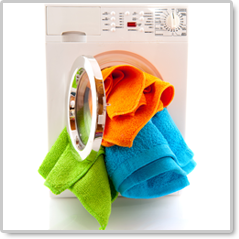 Did you know that dryers are the second highest energy-consuming appliance in most homes? And lint build-up is one of the major causes of the over 15,000 dryer fires that occur each year. This article gives you tips for keeping your dryer safe and for saving energy too. Why Is Dryer Care So Important?Washing and drying clothes is not typically a task that most people enjoy. It never ends, and if you have a large family, your washer and dryer are likely running constantly. And a dryer takes a lot of energy to operate. The annual cost for operating a clothes dryer is about $85 a year and can go up to $170 a year depending on the frequency of its usage. In most homes, the only household appliance consuming more energy is the refrigerator. Further, your dryer is an expensive item to replace, and as we mentioned above, the risk of a dryer fire is all too real.
The good news is that there are things that you can do to keep your dryer operating safely, reduce energy consumption and extend its useful life. So read on. Safety TipsYou may have heard the truly scary stories of clothes dryer catching fire because of lint accumulation. Here are some things you should do for the safety of your dryer.
Comments are closed.
|
AuthorDarren Gafiuk Archives
December 2018
Categories
All
|
Open 7 Days a WeekNo Additional Fee for evening or weekend appointments.
Phone: 1-780-499-2739
|
Services |
Member of:Our GuaranteeProud Supporter of: |
© COPYRIGHT 2022. ALL RIGHTS RESERVED.


 RSS Feed
RSS Feed






